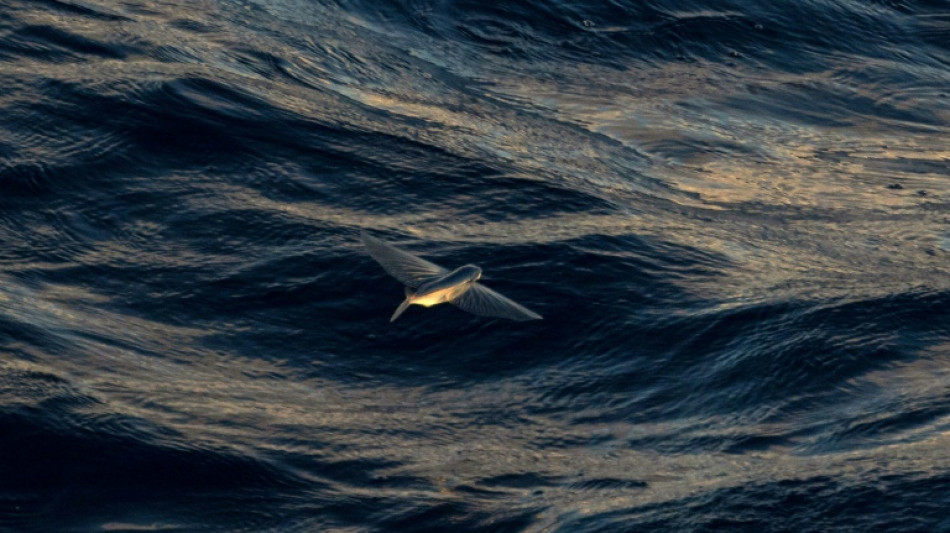
-
 Fleeing Myanmar, Rohingya refugees recall horror of war
Fleeing Myanmar, Rohingya refugees recall horror of war
-
Smith century puts Australia in control of 4th Test against India

-
 Israeli strikes hit Yemen as Netanyahu fires warning
Israeli strikes hit Yemen as Netanyahu fires warning
-
Peru ex-official denies running Congress prostitution ring

-
 Australia's Smith reaches 34th Test century
Australia's Smith reaches 34th Test century
-
NHL Red Wings fire Lalonde and name McLellan as head coach

-
 Injured Halep withdraws from Australian Open
Injured Halep withdraws from Australian Open
-
Liverpool power seven points clear, Man Utd crash at Wolves

-
 Leaders Liverpool survive Leicester scare to go seven points clear
Leaders Liverpool survive Leicester scare to go seven points clear
-
Membership of UK's anti-immigration Reform party surpasses Conservatives

-
 Two dead in treacherous Sydney-Hobart yacht race
Two dead in treacherous Sydney-Hobart yacht race
-
Amorim warns of 'long journey' ahead for miserable Man Utd

-
 Three dead, four injured in Norway bus accident
Three dead, four injured in Norway bus accident
-
Man Utd fall to Wolves as Fernandes sees red

-
 Fernandes sent off as Man Utd crash at Wolves, troubled Man City held by Everton
Fernandes sent off as Man Utd crash at Wolves, troubled Man City held by Everton
-
'Logical' that fatigued Spurs are faltering - Postecoglou

-
 Manmohan Singh: technocrat who became India's accidental PM
Manmohan Singh: technocrat who became India's accidental PM
-
India's former PM Manmohan Singh dies aged 92

-
 Acid risk contained in deadly Brazil bridge collapse
Acid risk contained in deadly Brazil bridge collapse
-
Chelsea stunned by Fulham in blow to Premier League title hopes

-
 Troubled Man City held by lowly Everton, Chelsea title bid rocked
Troubled Man City held by lowly Everton, Chelsea title bid rocked
-
Paterson, Bosch give South Africa edge over Pakistan in first Test

-
 Oil leak in Peru tourist zone triggers 'environmental emergency'
Oil leak in Peru tourist zone triggers 'environmental emergency'
-
Mozambique post-election violence kills 125 in three days: NGO

-
 Finns probing ship from Russia for 'sabotage' of cables
Finns probing ship from Russia for 'sabotage' of cables
-
Williams hits unbeaten 145 as Zimbabwe make Afghanistan toil

-
 Bowlers bring Pakistan back into first Test in South Africa
Bowlers bring Pakistan back into first Test in South Africa
-
Banbridge foils French to land King George VI Chase for Ireland

-
 Man City pay penalty for Haaland miss in Everton draw
Man City pay penalty for Haaland miss in Everton draw
-
Paterson takes five wickets as Pakistan bowled out for 211

-
 Kremlin cautions on 'hypotheses' over plane crash
Kremlin cautions on 'hypotheses' over plane crash
-
Pakistan military convicts 60 more civilians of pro-Khan unrest

-
 Turkey lowers interest rate to 47.5 percent
Turkey lowers interest rate to 47.5 percent
-
Syria authorities launch operation in Assad stronghold

-
 Record number of migrants lost at sea bound for Spain in 2024: NGO
Record number of migrants lost at sea bound for Spain in 2024: NGO
-
Kohli called out over shoulder bump with Konstas during fourth Test

-
 Rural communities urged to flee east Australia bushfire
Rural communities urged to flee east Australia bushfire
-
Sri Lanka train memorial honours tsunami tragedy

-
 S. Korea's opposition moves to impeach acting president
S. Korea's opposition moves to impeach acting president
-
'We couldn't find their bodies': Indonesian tsunami survivors mourn the dead

-
 Lakers pip Warriors after another LeBron-Curry classic
Lakers pip Warriors after another LeBron-Curry classic
-
India readies for 400 million pilgrims at mammoth festival

-
 Nepal hosts hot air balloon festival
Nepal hosts hot air balloon festival
-
Asia stocks up as 'Santa Rally' persists

-
 Tears, prayers as Asia mourns tsunami dead 20 years on
Tears, prayers as Asia mourns tsunami dead 20 years on
-
Sydney-Hobart yacht crews set off on gale-threatened race

-
 Key public service makes quiet return in Gaza
Key public service makes quiet return in Gaza
-
Fearless Konstas slams 60 as Australia take upper hand against India

-
 Hungry Sabalenka ready for more Slam success
Hungry Sabalenka ready for more Slam success
-
Mass jailbreak in Mozambique amid post-election unrest


What will the UN high seas treaty mean for protecting the ocean?
The world's first international treaty on the high seas, set to be adopted by the United Nations on Monday, contains landmark tools for the conservation and management of international waters.
International waters -- outside the jurisdiction of any single state -- cover more than 60 percent of the world's oceans.
Ocean ecosystems create half the oxygen humans breathe and limit global warming by absorbing much of the carbon dioxide emitted by human activities.
Once adopted, the UN treaty will go into force 120 days after 60 countries have ratified it.
Here are the key points of the text approved in March. The final version to be voted on has not yet been published.
- Ocean under threat -
The treaty begins by recognizing "the need to address, in a coherent and cooperative manner, biodiversity loss and degradation of ecosystems of the ocean."
These impacts include the warming of ocean waters along with their loss of oxygen, acidification, mounting plastics and other pollutants, as well as overfishing.
The text specifies that it will apply to waters beyond countries' exclusive economic zones, which extend to a maximum of 200 nautical miles from the coasts.
It also covers what is known as "the Area", shorthand for seabed and subsoil beyond the limits of national jurisdiction. The Area comprises just over half of the planet's seabed.
The Conference of the Parties (COP) will have to navigate the authority of other regional and global organizations.
Chief among these are regional fisheries bodies and the International Seabed Authority, which oversees permits for deep-sea mining exploration in some areas and may soon make the controversial move of allowing companies to mine beyond current test runs.
- Marine protected areas -
Currently, almost all protected marine areas (MPAs) are within national territorial waters.
The treaty, however, allows for these reserves to be created in the open ocean.
Most decisions would be taken by a consensus of the COP, but an MPA can be voted into existence with a three-quarters majority, to prevent deadlock caused by a single country.
One crucial shortcoming: the text does not say how these conservation measures will be monitored and enforced over remote swathes of the ocean -- a task that will fall to the COP.
Some experts say satellites could be used to spot infractions.
Individual countries are already responsible for certain activities on the high seas that they have jurisdiction over, such as those of ships flying their flags.
- Sharing the bounty? -
On the high seas, countries and entities under their jurisdiction will be allowed to collect animal, plant, or microbial matter whose genetic material might prove useful, even commercially.
Scientists, for example, have discovered molecules with the potential to treat cancer or other diseases in microbes scooped up in sediment, or produced by sponges or marine mollusks.
Benefits-sharing of those resources has been a key point of contention between wealthy and poorer nations.
The treaty establishes frameworks for the transfer of marine research technologies to developing countries and a strengthening of their research capacities, as well as open access to data.
But it's left to the COP to decide exactly how any monetary benefits will eventually be shared, with options including a system based on specific commercialized products, or more generalized payment systems.
- Environmental impact studies -
The treaty requires signatories to assess the environmental impacts of planned activities under their control on the high seas before they are authorized in instances when such activities may have more than a minor or transitory effect.
It also calls for countries to assess the potential impact on international waters of activities within national jurisdictions that may cause "substantial pollution" or harm the high sea marine environment.
Ultimately, states are responsible for giving the green light to any potentially harmful activity -- a role NGOs hoped would go to the COP, to make controversial approvals more difficult.
The treaty also requires states to publish updates on an activity's environmental impacts. Approvals can be called into question if unanticipated impacts arise.
Though they are not specifically listed in the treaty, activities that could come under regulation include transport and fishing, as well as more controversial subjects such as deep-sea mining or even geo-engineering initiatives to mitigate global warming.
P.Cavaco--PC



